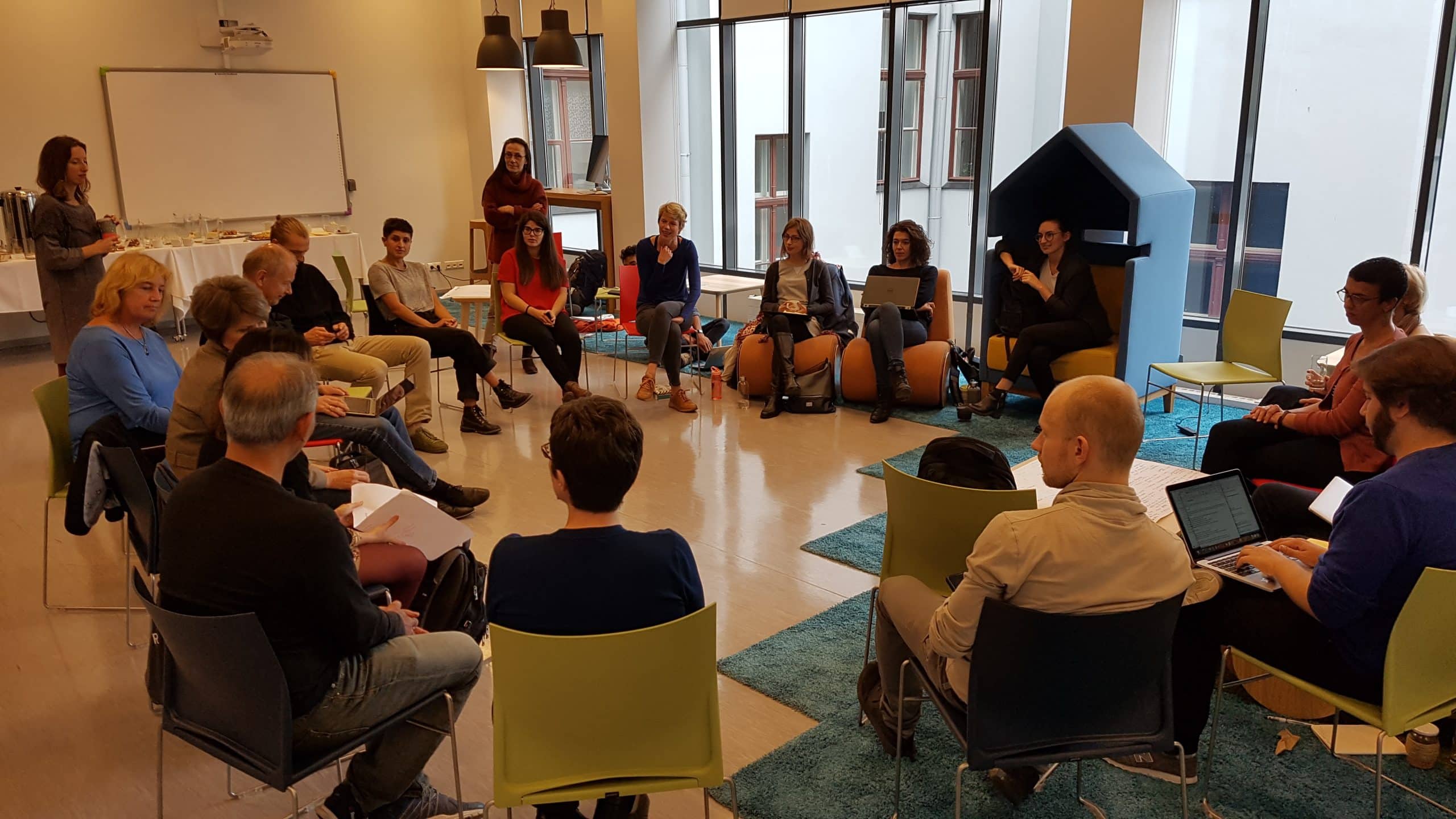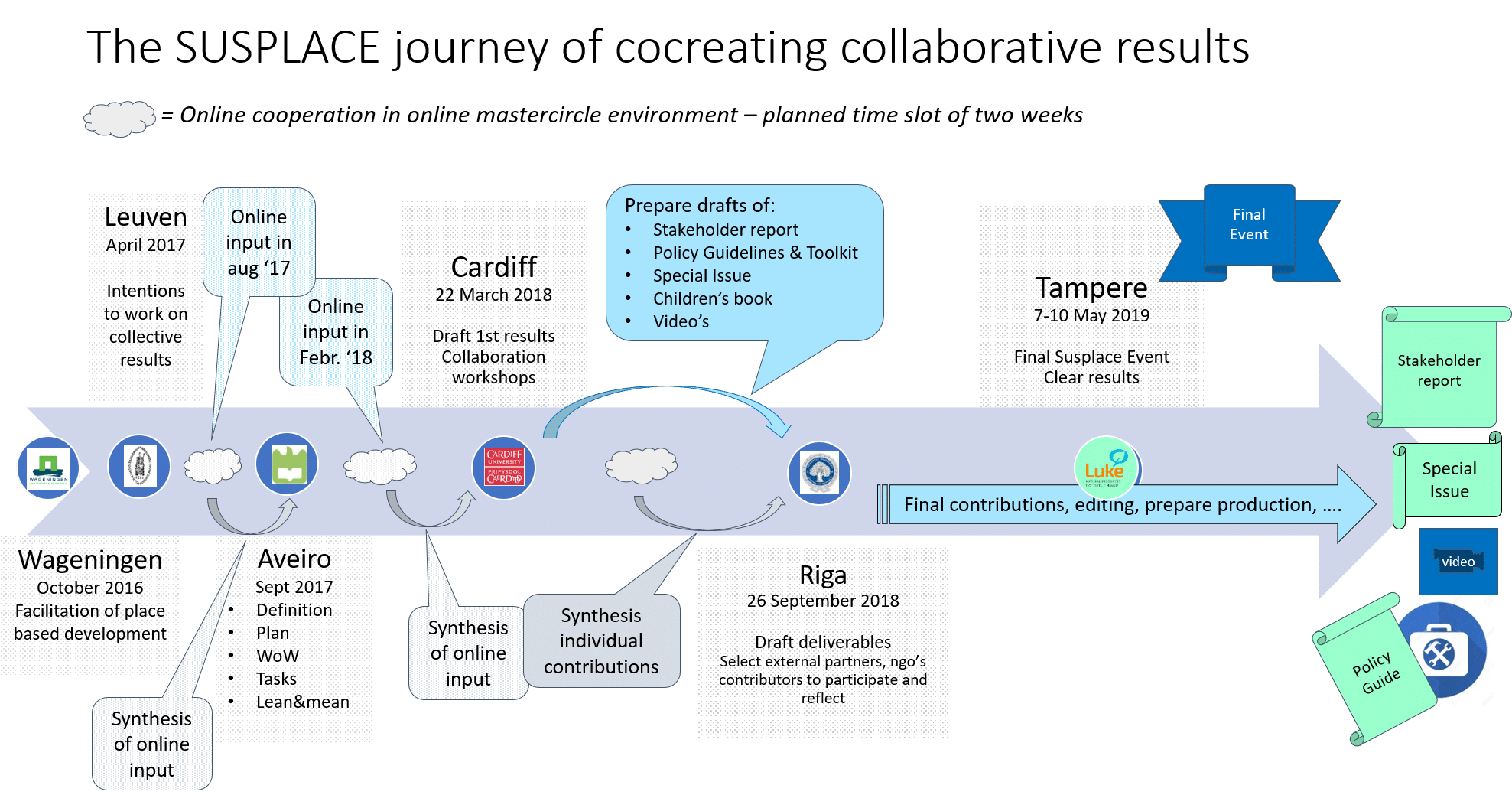
With the SUSPLACE project coming to an end on September 30th 2019, it’s time to look back and reflect on what we learnt. Not only in terms of scientific insights, but also in terms of our own learning journey as a consortium.
In the past 3 years, consultancy RoyalHaskoningDHV (RHDHV) supported SUSPLACE’s learning journey. Job van den Berg and Jantine Zwinkels co-created and facilitated the learning journey roadmap and facilitated workshops during joint meetings of the partners. This facilitation supported collaboration, provided direction, and created shared ownership.
Group facilitation is a process in which a person – who is neutral, acceptable to all members of the group, and has no substantive decision-making authority – diagnoses and intervenes to help a group improve how it identifies and solves problems and makes decisions, in order to increase the group’s effectiveness (Schwarz, R 2016, The Skilled Facilitator).
Key aspects of RHDHV’s involvement were:
- Providing a training course on ‘Facilitation of Place-based Development’ with the goal of using facilitation as tool and skill in participative research. This also helped the fellows to become a community amongst themselves.
- Design and facilitation of the collaboration process to create joint scientific output
- The use of a secured online platform, called Mastercircle, to capture exchanged information, feedback and follow up discussion in text, images and video.
Key insights on the facilitation of a structured collaboration process to enhance researchers’ work are:
- Facilitation empowers self-management in the research team
Managing and coordinating collaboration in large, complex research teams benefits from the self- management skills and power within the team and the ability to use this in a complimentary and empowering way. Group dynamics can benefit from professional facilitation, applying ways of working that create structure and guide the appropriate follow up steps.
- Integrate the use of online tools in the facilitation of collaboration
Online tools to gather and exchange key contributions within a research team are effective when well-integrated in the facilitation of the collaboration process. These online tools need a moderator to plan and facilitate contributions with a dedicated time frame.
- Make facilitation of collaboration an explicit and integrated part of the management and coordination of complex research consortia and projects
Collaboration processes can be improved by professional facilitation skills and methods. The training of fellows in SUSPACE provided insights into the role of facilitation in research projects and the role of a researcher when applying participative methods. The facilitation of events contributed to the planning and quality of the collaborative deliverables. This type of complex international and interdisciplinary research project benefits when more attention is paid to the processes of internal collaboration over multiple years.

